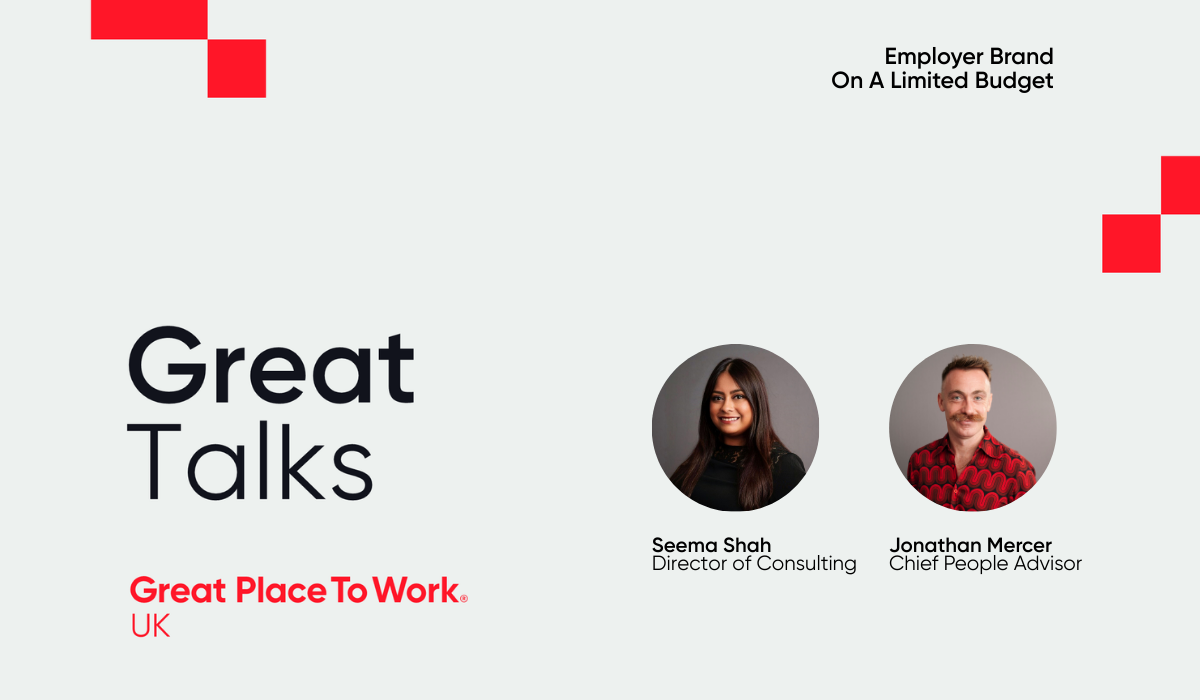When you invest in workplace culture, your business is more profitable.
Employees with consistently positive experiences in the workplace are more likely to stay with the organisation. They experience less burnout, give higher levels of effort, and are more productive.
The cumulative result: Companies with high-trust cultures are more profitable and have higher stock market returns.
Here are five ways the data proves workplace culture drives profit:
Great workplaces have higher retention rates
At the UK’s Best Workplaces™, 85% of employees want to stay at their organisation for a long time – 24 percentage points higher than the UK average.
Considering the high price of hiring new employees - both in recruitment costs and the loss of time and productivity whilst onboarding - a lower turnover rate is a key driver for profitability. Creating a workplace that employees don’t want to leave means saving money in the long run.
A great culture also helps companies recruit top talent. 88% of employees at the UK’s Best Workplaces would strongly recommend their company to family and friends as a great place to work, and two-thirds of UK employees say they're more likely to apply for a job that is officially recognised as a great place to work1. This positive reputation as an employer can ultimately cut the cost of sourcing talent too.
Great workplaces have lower levels of burnout
Worried about productivity? Workers who are burned out might be “quiet quitting” rather than helping you reach crucial business goals. Or they might be actively seeking their next job.
Burnout is a productivity killer, and a less productive workforce means a less profitable organisation. 84% employees at the UK’s Best Workplaces think their organisation is a psychologically and emotionally healthy place to work, and 86% agree that people are encouraged to balance their work and personal life - a vital factor for preventing burnout.
Great workplace employees go the extra mile
When employees feel valued by their organisation and engaged by their work, they are happy to go above and beyond to help the business.
At the UK’s Best Workplaces, 89% of employees agree that people are willing to give extra to get the job done, compared to the UK average of 67%. That might have something to do with the fact that 81% feel that their work has special meaning - it’s not ‘just a job.’ Building a great workplace culture means building a dedicated workforce who will go the extra mile to help drive profitability.
Great workplaces bounce back faster
Great Place To Work research shows that companies with inclusive, high-trust cultures bounced back quicker both from the 2007 - 2009 recession, and from the Covid-19 pandemic.
By analysing data from over 1,700 companies, Great Place To Work identified five groups of employees that can make or break your recovery from a recession. In organisations where these groups (women, front-line workers, hourly male workers, long tenured employees and people of colour) thrived, the business thrived too. Their stock performance increased by 35% from 2006 - 2014, compared to a 9% gain from the S&P 500.
More recently, the Fortune 100 Best Companies to Work For® outperformed the broader market by 16.5% in 2020. This impressive feat during a time of global crisis suggests that companies that have treated their employees well historically tend to fare well during difficult times.
Great workplaces have higher stock returns
It’s not just short-term cost savings that make a great workplace culture so valuable to businesses. Research from Alex Edmans of the London School of Economics shows investing in workers leads to long-term business success.
Edmans analyzed the history of the 100 Best Companies lists from 1984 to 2009. Controlling for firm size, industry, past returns, and many other variables, Edmans demonstrated that companies on the list outperformed the stock market by 2% to 3% per year.
With the best organisations seeing their revenue grow 550% faster than less inclusive organisations, it’s expensive to leave workers behind.
But isn’t employee wellbeing just an indicator of running a profitable business? The more money you make, the more perks and benefits you can offer alongside inflated salaries, right?
Not quite.
Treating employees well doesn’t just correlate with higher stock returns, it predicts future performance. It takes four to five years before the market catches up to the value of employees’ job satisfaction.
Profits don’t create great workplaces. It’s the other way around.
1 Great Place To Work 2023 UK Population Study



.png)



